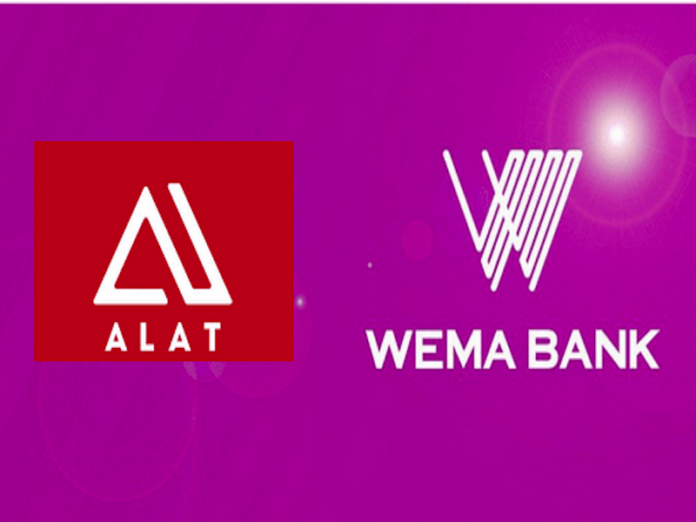Now Reading: Top 10 Oldest Banks in Nigeria
-
01
Top 10 Oldest Banks in Nigeria
Top 10 Oldest Banks in Nigeria

Banking in Nigeria didn’t start with mobile apps, online transfers, or ATMs. Long before digital transactions became the norm, the oldest banks in Nigeria laid the foundation for the nation’s financial system, back when ledgers were written by hand and tellers used abacuses to balance accounts.
These banks didn’t just handle money, they shaped Nigeria’s economic history, weathered military regimes, and transitioned through several banking reforms to remain relevant in the modern financial era.
Below, we take you through the top 10 oldest banks in Nigeria, their origins, and how they evolved into the institutions we know today.
10. Polaris Bank (Legacy of Prudent Bank, Established 1989)

Polaris Bank, though officially established in 2018 after taking over from the defunct Skye Bank, traces its roots to Prudent Bank Plc, founded in 1989.
Through multiple mergers, takeovers, and CBN-led reforms, its legacy dates back over three decades making it one of the oldest banks in Nigeria with an unbroken operational lineage.
It continues to provide digital and retail banking services under a renewed brand identity aimed at restoring customer confidence.
9. Sterling Bank (Established 1960)

READ ALSO: 10 Richest Nigerian Banks in 2025 (Ranked)
Formerly known as Nigerian Acceptances Limited (NAL Bank), Sterling Bank started in 1960, the year of Nigeria’s independence.
Initially focused on investment banking, it evolved through several mergers, most notably with Magnum Trust Bank and Indo-Nigerian Bank to become Sterling Bank Plc in 2006.
Its inclusion among the oldest banks in Nigeria stems from its historic link to Nigeria’s early post-independence financial reforms.
8. Fidelity Bank (Established 1988)

Fidelity Bank began operations in 1988 as a merchant bank before transitioning into a commercial bank in 1999. Despite being younger than some colonial-era institutions, it’s now considered one of the oldest banks in Nigeria still operating under Nigerian ownership.
It has earned a reputation for solid corporate governance and financing SMEs (Small and Medium Enterprises). Its expansion strategy shows how homegrown banks can compete with global standards.
7. Zenith Bank Plc (Established 1990)
Zenith Bank may not seem “old” to the younger generation, but in Nigeria’s fast-changing financial ecosystem, three decades is a lifetime.
Since its establishment in 1990, Zenith Bank has grown into one of the largest and most profitable financial institutions in Africa.
Its inclusion among the oldest banks in Nigeria is due to its consistency, transparency, and dominance in corporate banking, digital innovation, and asset management.
6. FCMB (First City Monument Bank) – (Established 1982)

Though relatively younger compared to others, FCMB earns its place among the oldest banks in Nigeria because it was the first indigenous bank to be established without foreign backing.
Founded by Otunba Subomi Balogun, FCMB started as an investment banking firm and later obtained a commercial banking license in 1982.
It became known for introducing customer-focused services and flexible account management long before digital banking became a norm.
5. Afribank Nigeria Plc (Established 1959)

Though no longer operational, Afribank was once one of the oldest banks in Nigeria, established in 1959 as British and French Bank for Commerce and Industry.
Afribank was instrumental in funding government projects during the First Republic and played a major role in developing Nigeria’s commercial and industrial sectors.
After decades of service, it was liquidated in 2011 and its assets were taken over by Mainstreet Bank, which was later acquired by Skye Bank (now Polaris Bank).
4. United Bank for Africa (UBA) – (Established 1949)
UBA’s story as one of the oldest banks in Nigeria began in 1949 as the British and French Bank Limited (BFB). After Nigeria’s independence, it was incorporated as United Bank for Africa in 1961.
UBA has since grown into one of Africa’s most powerful financial brands, with operations in over 20 African countries and even offices in the U.S., U.K., and France.
It was also one of the first Nigerian banks to list on the Nigerian Stock Exchange, symbolizing financial inclusion and corporate strength.
3. Wema Bank (Established 1945)

Next among the oldest banks in Nigeria is Wema Bank, founded in 1945 as Agbonmagbe Bank Limited. It started as a small regional bank in the Western Region before expanding nationwide.
In 1969, it became Wema Bank Limited and continued its steady growth through Nigeria’s economic ups and downs. Today, Wema Bank is best known for launching ALAT, Nigeria’s first fully digital bank, a testament to how an old institution can evolve with innovation.
2. Union Bank of Nigeria (Established 1917)

Founded in 1917 as Colonial Bank, Union Bank is another pillar among the oldest banks in Nigeria. It became Barclays Bank DCO (Dominion, Colonial and Overseas) after an acquisition, and later, following indigenization in 1979, became Union Bank of Nigeria.
The bank played a vital role in trade finance, agriculture, and development projects across the post-independence era. It remains one of the most trusted banks for both individuals and corporate clients, even after rebranding efforts to appeal to the digital generation.
READ ALSO: Top 10 Northern Nigerian Entrepreneurs Who Built Businesses From Zero
1. First Bank of Nigeria (Established 1894)

When you talk about the oldest banks in Nigeria, First Bank always tops the list and rightly so. Established in 1894 as the Bank of British West Africa (BBWA), it was the first financial institution to open its doors to Nigerians during the colonial era.
Originally set up to serve the British trading companies in West Africa, First Bank has evolved into a household name. It changed to Standard Bank of West Africa, then First Bank of Nigeria in 1979, and later became First Bank Holdings Plc.
Today, it boasts millions of customers, hundreds of branches, and strong digital banking presence, yet it still maintains that heritage of being “Truly the First.”
The oldest banks in Nigeria were more than financial institutions, they were nation builders. They financed cocoa and palm oil exports in the 1950s, funded infrastructure in the 1970s, and supported tech-driven commerce in the 2000s.
According to Nairametrics (2024), First Bank and UBA remain the most systemically important banks in Nigeria, contributing significantly to GDP growth and SME financing. The World Bank’s Nigerian Financial Sector Report also highlights how early indigenization efforts in banking helped grow domestic capital markets and entrepreneurship.
These institutions paved the way for fintechs like Opay, Kuda, and PalmPay to thrive today.






